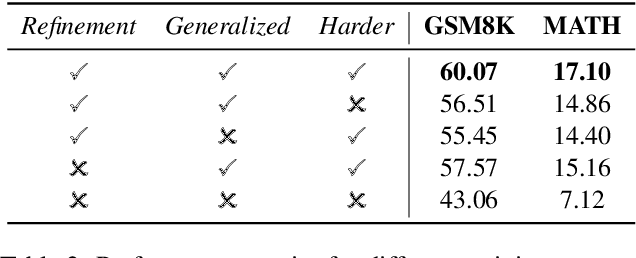YODA: Teacher-Student Progressive Learning for Language Models
Paper and Code
Jan 28, 2024



Although large language models (LLMs) have demonstrated adeptness in a range of tasks, they still lag behind human learning efficiency. This disparity is often linked to the inherent human capacity to learn from basic examples, gradually generalize and handle more complex problems, and refine their skills with continuous feedback. Inspired by this, this paper introduces YODA, a novel teacher-student progressive learning framework that emulates the teacher-student education process to improve the efficacy of model fine-tuning. The framework operates on an interactive \textit{basic-generalized-harder} loop. The teacher agent provides tailored feedback on the student's answers, and systematically organizes the education process. This process unfolds by teaching the student basic examples, reinforcing understanding through generalized questions, and then enhancing learning by posing questions with progressively enhanced complexity. With the teacher's guidance, the student learns to iteratively refine its answer with feedback, and forms a robust and comprehensive understanding of the posed questions. The systematic procedural data, which reflects the progressive learning process of humans, is then utilized for model training. Taking math reasoning as a testbed, experiments show that training LLaMA2 with data from YODA improves SFT with significant performance gain (+17.01\% on GSM8K and +9.98\% on MATH). In addition, we find that training with curriculum learning further improves learning robustness.
 Add to Chrome
Add to Chrome Add to Firefox
Add to Firefox Add to Edge
Add to Edge